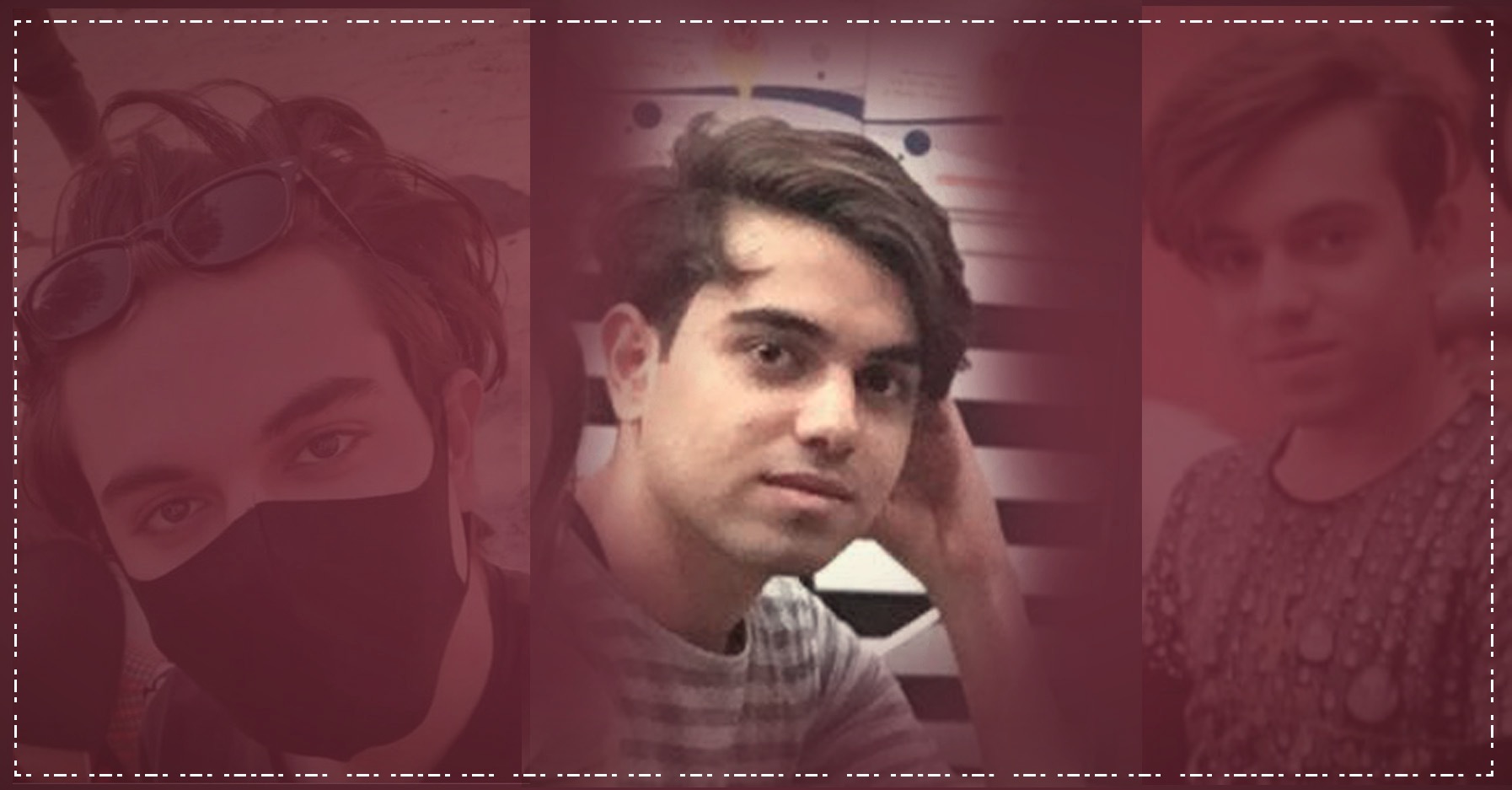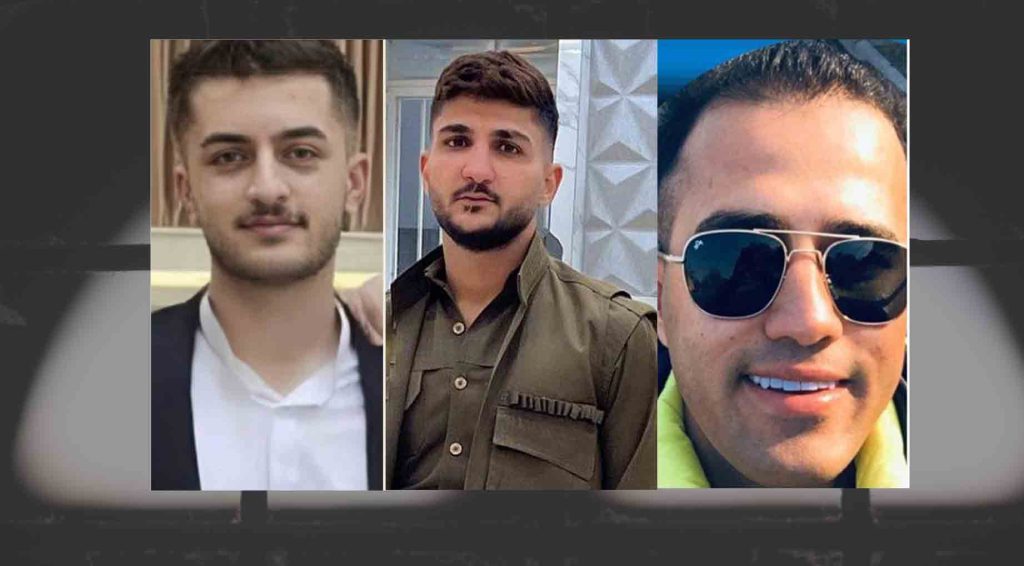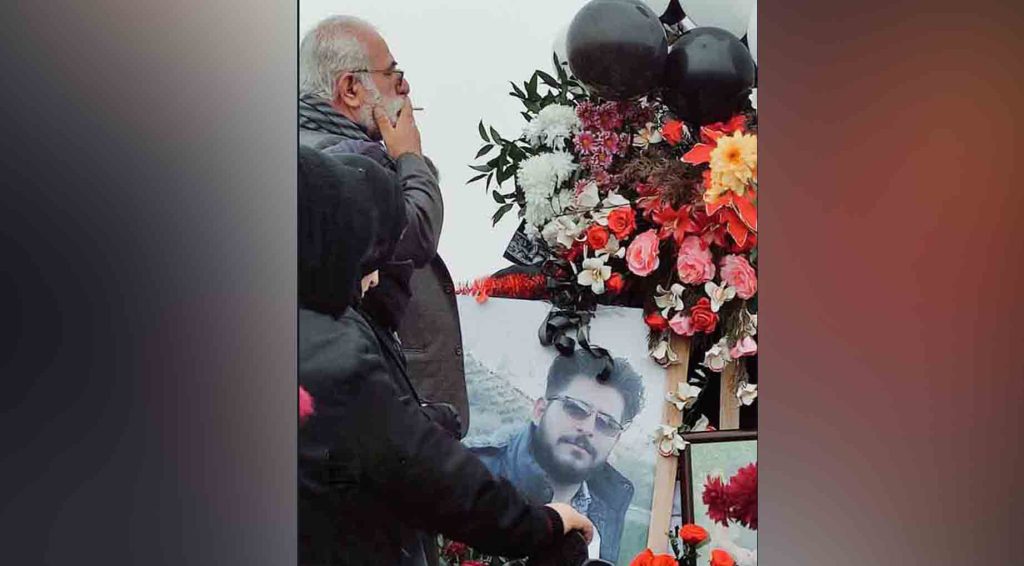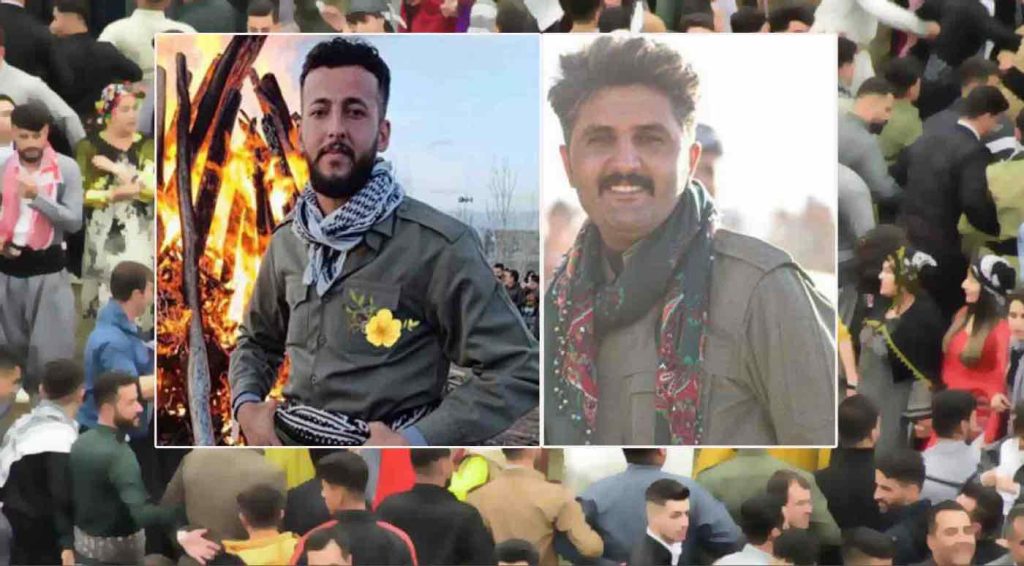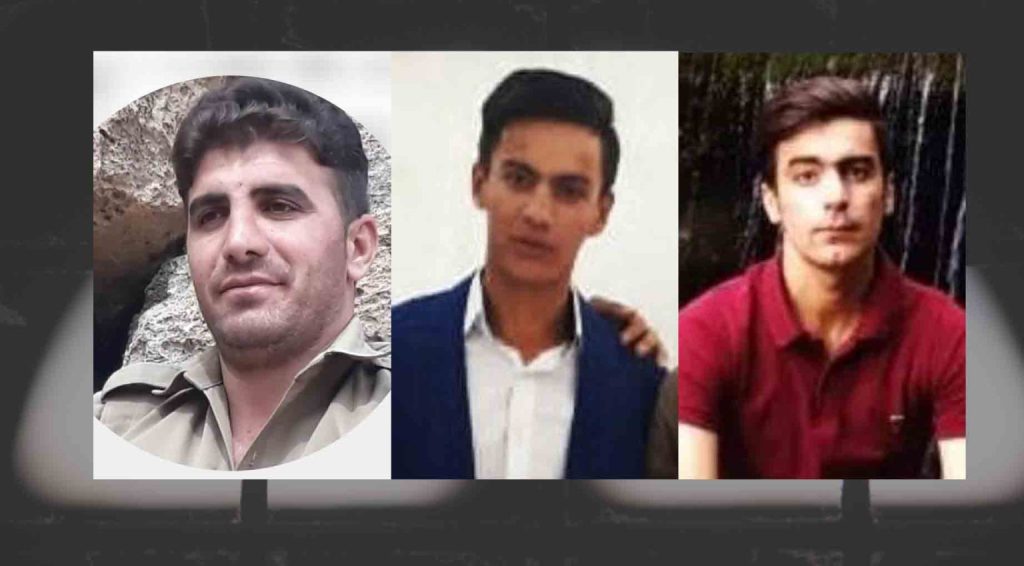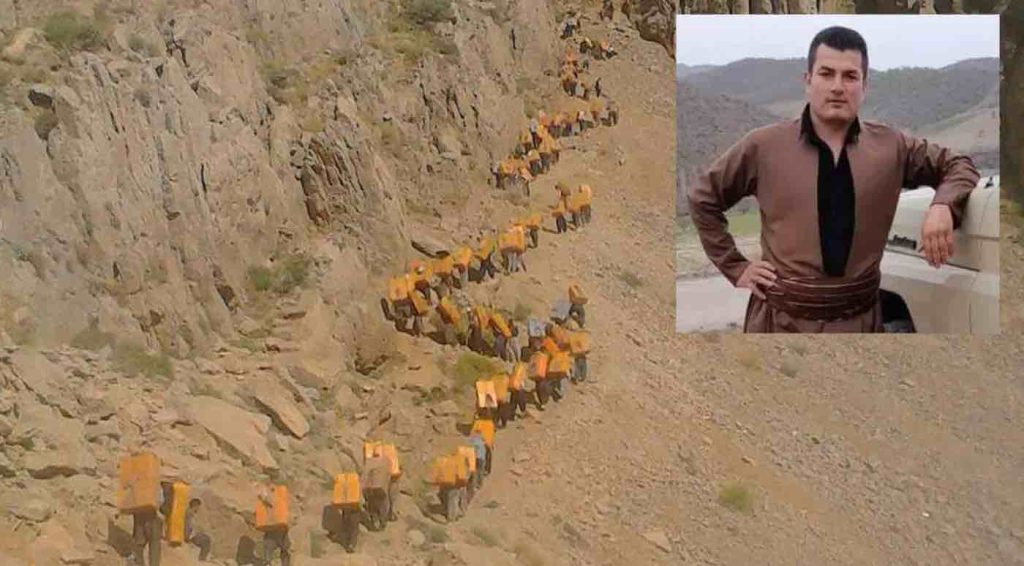In recent days, the news of the suicide of a Kurdish transgender* woman named Hanar in Marivan, in northwestern Iran’s Kurdistan province, circulated on social media.
One of the sources that published the news was the Instagram account of the Kurdistan LGBTIQ Community, which has been working for years to defend the rights of the queer** community in the Kurdish language.
Hanar, 20, committed suicide at her family house in Marivan on 7 February.
Jabbar Dastbaz, a journalist in Sanandaj, Kurdistan province, spoke to the Kurdistan Human Rights Network (KHRN) about the reasons for Hanar’s suicide and said: “Hanar had long been frustrated and depressed by social pressures, and found it impossible to live as a trans woman in a society where her identity was not recognized. She had even talked to her close friends about this feeling of frustration and helplessness a few days before she committed suicide.”
The Kurdish journalist added: “Hanar, like many other transgender people living in small towns with traditional forms of social relations, had to hide her identity even from her family. Nevertheless, she had been harassed many times in the city because of her gender expression. She even had to drop out of high school due to social pressures.”
Over the past two days, Hanar’s friends from the transgender and queer communities of Marivan have expressed their sorrow over the death of their friend by posting photos and posts about her on Instagram. Videos of her friends attending and mourning on her grave have also been shared.
“The funeral was held by the family, with no mention of Hanar’s gender identity nor her reason for committing suicide. But on the same day, her friends, most of whom were transgender and queer persons, paid their respects by showing up at Hanar’s grave”, said Dastbaz.
As the news on Hanar’s suicide was published, a person who introduced himself as a member of her family wrote on his Instagram account that Hanar had lost her life due to a heart attack. This person who referred to Hanar as “Rebwar” – the male name on her identity card – did not mention her gender identity nor her preferred name among her friends, i.e. Hanar.
The KHRN’s has, meanwhile, confirmed from various sources that Hanar’s death was due to suicide.
The publication of the news on Hanar’s suicide on social media once again drew limited attention to the problems of the trans community in Kurdistan and Iran.
Problems that, despite their breadth and depth, not only have not yet been widely discussed, but also have not become the subject of serious debate among Kurdish activists and the media, even in the wake of tragic events such as Hanar’s suicide.
Fatemeh Karimi, an activist and researcher in the field of women’s rights and the director of the KHRN, said: “Contrary to violence against women, which is accepted as a social phenomenon by many, unfortunately, we cannot speak of sensitivity towards the queer society, especially trans persons, even among Kurdish civil rights, political, and media activists. The murder or suicides of these people and the daily violence inflicted on members of this society not only does not provoke a reaction, but even people who consider themselves intellectuals have problems with accepting diverse sexual orientations, gender identities, and lifestyles of people outside the heterosexual relationships between men and women. Lack of reaction and protest against violence against queer people is a clear sign of lack of sensitivity and sufficient awareness, as well as hatred towards queers among a large number of political and civil activists.”
Karimi added: “Although the diversity of sexual orientations and gender identities has always existed in human society, the systematic and comprehensive repression imposed by the institutions of religion, government, family, etc., on such individuals has prevented the queer people and their lifestyles from being seen. Many people belonging to this group are forced to hide their identities as a result of these pressures. Lack of necessary and sufficient education and knowledge about sexuality, taboos without talking on these matters, and the existence of many false stereotypes about queer people are the main cause of pressure and violence towards them. For example, if there are different interpretations of religion in the discussion of violence against women, divorce, or polygamy, and some religious people have more moderate approaches to these issues, often there is no doubt among religious individuals or groups in the rejection of homosexuality, bisexuality, etc. Such an interpretation is explicitly reflected in the anti-queer laws of the Islamic Republic of Iran.”
According to Karimi, opposition to the right to a free and equal life for queer people, especially trans people, is not limited to conservative institutions. She says that even educated people and some civil rights, political, and media activists view the sexual orientation, identity, and gender expression of these people as “abnormal” or “ill”.
She added: “Because, in their view, such identities are not acceptable as long as they contradict with the male-female duality, the duality known as the only dominant norm of society. This group of activists may not openly express their opposition to the queer community, but by remaining silent in the face of daily violence against and suicides and murders of members of this community, complete the cycle of violence perpetrated against them. In such circumstances, those queer people who, despite many limitations and barriers, reveal their identities or are exposed through their lifestyles and gender expressions incur heavy costs.”
For queer individuals, discovering and revealing their identities is an important stage in their personal and social lives. These are stages that are difficult to reach in a country like Iran and many societies such as the Kurds due to criminalisation, viewing [queers] as ill, traditional understanding and mechanisms, anti-queer culture in society, as well as lack of protection laws for queers.
The process of discovering and revealing one’s identity can be more complicated and risky for people who, in addition to being queers, belong to a marginalised national or religious minority group. Also, disability, class and economic relations, or living in smaller towns and villages can make it more difficult to access educational resources and create relatively safe spaces for queers for the process of discovering and revealing their identities.
Intersectionality, which has entered the field of human rights through feminist and queer discourse, emphasizes the intersection of oppression and double discrimination that must be considered in analysing the different situations of marginalised individuals and societies.
The discrimination and violence perpetrated by governments, societies, and the family are among the main reasons why queers are rejected and isolated. This rejection and isolation can cause frustration and depression in these people and in some cases lead to the decision to commit suicide.
In addition, there are no accurate and even approximate statistics on the violence against and murder of queer people by their family members. This is an issue that although not covered in the media, and because it is kept secret by the family, poses a serious threat to the lives of queer people. The silence of activists and the media in this regard are constantly criticised by activists in the field.
Pishkou Zandi, a Kurdish queer activist and director of the Kurdistan LGBTIQ Community Instagram account, spoke to the KHRN about the effects of Hanar’s suicide on the transgender and queer society of Kurdistan, criticising the silence of the Kurdish media or their method of the depiction of the issue as well as the revealing of sexual orientation and gender identity.
Zandi said: “Undoubtedly, the news of suicide or any other news that in some way expresses discrimination and violence against queer people in a closed society like Kurdistan, can have a direct impact on the morale and life of other people in the community of sexual and gender minorities. In a situation where the family, the community, and the government are all in opposition to the right to life as equals and have made the path of education, employment, love, sex and use of public services difficult and in some cases impossible for the people of this community, we can say that all of them are complicit in the killing of queer people and the main cause of their suicide.”
According to Zandi, informing families can greatly solve the problems of trans and queer people, because if those around them support them and provide them with a relatively safe environment, the number of suicides and homicides would undoubtedly decrease and their hope for life and quest for equal rights would also increase.
Zandi continued: “In the current atmosphere of Kurdistan, we need to spread information and awareness more than anything. The state-run media’s stance on the matter is clear. Unfortunately, the Kurdish media have also either remained silent in this regard or if they produce content about queers, it is more in the direction of destroying and defining their sexual orientation and gender identity as abnormal. In turn, this will lead to a negative mentality in the society towards the queer society, instead of creating a culture.”
The Islamic Penal Code of Iran criminalises same-sex relations and punishes it by flogging, imprisonment, and even the death penalty.
The Islamic Republic of Iran refers to transgender people as “ill” and “disturbed”.
Although it is possible to perform transition and gender reassignment surgeries in Iran, the process of obtaining a license and performing it is very complicated and expensive, especially for those who do not have family support and financial means.
Access to hormone therapy, surgery, and change of identity in Iran, especially in small towns, is a process full of structural barriers that is usually done without sufficient advice or support.
In many cases, transgender people have to undergo a series of unnecessary medical surgeries to be legally recognized as male or female.
There have been many reports of degrading treatment of transgender people in governmental, judicial, and medical institutions.
In addition, the hatred that exists in the laws and the society towards transgender persons makes it very difficult, and in many cases impossible, for these individuals to continue their education, find a job, or rent a house.
Speaking on the difficulties that the transgender society faces in Iran, journalist Dastbaz said: “In addition to the legal-governmental and family-social problems that are the main cause of repression, violence, and exclusion of transgender people, economic problems also play a very important role in their living conditions. When trans persons are not only not seriously protected by law but are also at risk of government repression on a daily basis because of their gender identity, sexual orientation, gender expression, and type of clothing; when they are not accepted by family and even rejected by them; and when they experience constant verbal and physical harassment in the community and public spaces, there is practically no possibility for them to take advantage of educational and job opportunities.”
According to this Kurdish journalist, all these conditions put trans persons in Iran, especially in Kurdistan, which is one of the underdeveloped economic regions with a high unemployment rate, in an economically disadvantaged position, and this makes them more vulnerable.
Dastbaz added: “Many trans people are forced to migrate from small towns to larger cities and Tehran without economic support and as a result of social pressures. But the fact is that even there, although they are somewhat free from the pressure of family and acquaintances, they face serious problems and obstacles in finding a suitable job and income to continue living.”
Hanar’s death is just one of the suicides of many transgender and queer people in Kurdistan, which was reported by her friends. Salar from Divandarreh, Shervin and Sami from Kermanshah, Azad from Piranshahr, Doski from Duhok, and dozens of other names have been recorded in the collective memory of the Kurdish queer community as victims of queer killings and suicides.
Names and stories of the lives and deaths of these human beings, although not generally heard from the media and political platforms, will be recorded by the witnesses of their sufferings to make sure that they are not forgotten in the queer history of Kurdistan.
Notes:
*A transgender person is someone who identifies with his or her gender identity differently from the gender attributed to him or her at birth by a male or female sexual organ. A transgender person can introduce themselves as a woman, a man or non-binary. Their expression is sufficient to recognize their gender identity, and gender reassignment surgery should not be a criterion for determining a person’s gender.
**Due to its widespread use today, the term queer is equivalent to LGBTI + and is used as an umbrella term for people whose sexual orientation is not limited to heterosexuality or their gender identity is not limited to the defined duality of man and woman. These include transsexuals, intersexuals, homosexuals, bisexuals, pansexuals, asexuals, non-binaries, etc.
1- If you are thinking of committing suicide, call the social emergency number 123 in Iran and benefit from the possibility of specialised counselling and assistance.
2- The Kurdistan Human Rights Network (KHRN), as a human rights organisation that works to promote the principles and values of human rights, while laying emphasis on the rights of queer people, views the existence of discriminatory laws and government repression, and the use of domestic and social violence against queers as a clear example of human rights violations. We are committed to working for the realisation of the rights of the queer community of Kurdistan and Iran, and we are ready to provide free online counselling to individuals and families in Iranian Kurdistan through our expert partners familiar with issues of sexuality and the queer community.

